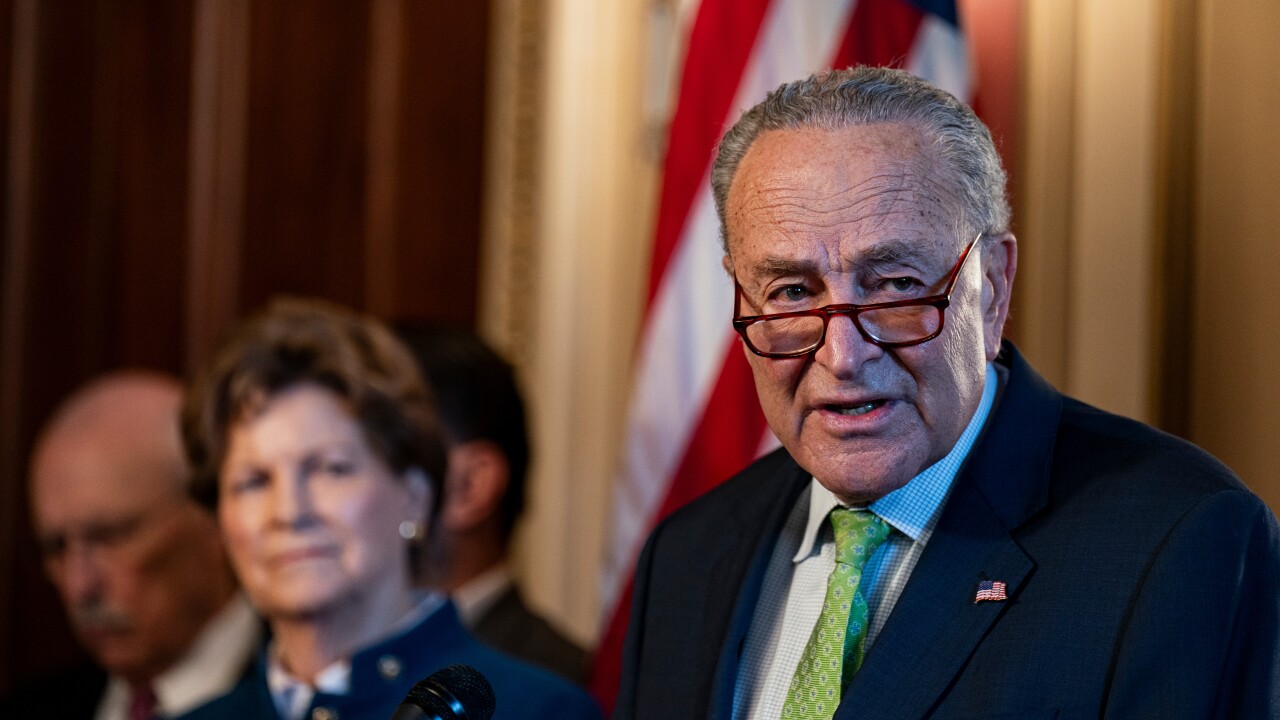-
Trump's executive order raises concern about whether the SEC will pursue certain fraudsters, even if staff deems action warranted.
February 20 -
The DOT cited the use of the tolls for transit as one of its reasons to terminate.
February 19 -
Trump had promised during his campaign to terminate the electric vehicle charging station program.
February 19 -
Most federal lease debt has large bullet maturities that require refinancing, asset sales or a new lease to avoid default.
February 18 -
In 2017, Congress moved from budget resolution to reconciliation legislation in less than six weeks.
February 14 -
The legislation comes as the municipal market industry fends off threats to tax-exempt municipal bonds.
February 13 -
The deeper the proposed cuts, the more the municipal market fears for the fate of tax-exempt bonds.
February 12 -
Audit activity in the municipal market ebbs and flows with the IRS budget.
February 11 -
Lawsuits are mounting against the Trump administration's aggressive actions to cut federal spending.
February 10 -
Texas Sen. John Cornyn remains a supporter of private activity bonds, his staff told BDA.
February 7 -
The NYC TFA will test how the national news cycle has affected the market's appetites.
February 6 -
The directive appears to apply to discretionary grant programs and not state formula funds.
February 6 -
Transportation officials and lawmakers are exploring the road ahead for the Highway Trust Fund, electric vehicle user fees, and the reauthorization of the surface transportation bill as friction over funding mounts.
February 5 -
The muni industry is trying to get to the bottom of questions around how the House arrived at savings estimates for eliminating the tax exemption.
February 4 -
The Treasury department aims to stand it up within the next 12 months.
February 4 -
From two Colorado lines to more Amtrak service, Southwest states are advancing passenger rail projects, but the Trump administration may slow that roll.
February 4 -
Issuers, trade organizations, and investors team up to fight the threat to the tax-exempt status of municipal bonds by laying out its effect on borrowing, the housing market, and infrastructure costs.
February 3 -
A group of Democratic states Thursday filed a fresh motion for an injunction, arguing the administration may continue to freeze federal funds despite the recission.
January 30 -
State and local governments are on strong financial footing and are investing in Treasury securities as chaotic federal moves shake out.
January 30 -
Municipal market advocates plan to use the data to support the case to Congress for preserving the tax exemption.
January 30



















